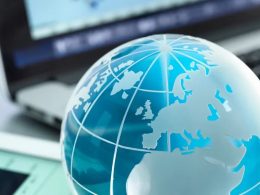by Ning Meng, China A-Share Strategy Leader, Neuberger Berman
Today’s CIO Weekly Perspectives comes from guest contributor Ning Meng.
In China, today is the last day of the Lunar Year of the Ox, and the eve of the New Year of the Tiger.
In 2021, many investors decided that China’s explicit prioritization of “common prosperity,” its tightening of conditions for the real estate sector and its regulatory crackdown in sectors such as education and the internet economy had turned it into a lumbering ox. Could the New Year mark its return as a growth tiger?
Counter-Cyclical Policies
We believe so.
“China’s policymaking, though centralized, has historically exhibited a self-correcting mechanism,” we wrote last September, at the height of the regulatory tightening. “We believe the government will adjust its policies if these measures encounter economic pressure.”
That is what we have seen since counter-cyclical policies were proposed at December’s Central Economic Working Conference.
Aggressive monetary policy easing is unlikely given ongoing risks in the real estate sector, but the People’s Bank of China (PBoC) has already cut its Required Reserve Ratio (RRR) by 50 basis points, as well as cutting its Standing Lending Facility rate, making two cuts to benchmark Loan Prime Rates and one to its Medium Lending Facility rate. New rules enabling property developers to access funds from sales held in escrow are currently being drafted.
We believe those measures are supportive of credit growth and can ease cash shortages. We anticipate a similar loosening of fiscal policy, focused on infrastructure spending, over the coming weeks.
On regulation and reorientation, it is not so much the policy objectives that have changed—and certainly not the long-term aim of common prosperity—but the tone regarding the speed of the transition. “We will first make the cake bigger, and then divide it properly,” President Xi Jinping told the World Economic Forum earlier this month, acknowledging that strong, stable growth is a prerequisite for common prosperity.
While GDP growth has moderated from the highs of early 2021, the fourth quarter surpassed expectations and most economists forecast growth in excess of 5% for 2022.
Value Opportunities in Recovering Sectors
This outlook informs the sectors we currently favor.
We think a reviving economy can support banks, consumer staples, consumer electronics and healthcare.
We also like the technology sector. In some respects, this is a continuation of our view from last year. Semiconductor companies are contained in this sector, which are likely to continue to benefit from the government’s import-substitution efforts. A number of renewable energy equipment manufacturers, which we see as potential beneficiaries of the greening and electrification of the economy in China and worldwide, are also categorized as tech.
In other respects, our tech-sector views reflect both the improving economic outlook and the change of tone on regulation. A less aggressive antitrust approach could enable internet and ecommerce firms to benefit from their traditionally high sensitivity to economic recovery, through growing consumer spending and online advertising revenue. After their Year-of-the-Ox selloff, we believe they offer attractive value.
Similarly, we think that more accommodative policy is positive for some parts of the beaten-up real estate sector. The industry is consolidating, with banks lending to larger state-owned and private property developers so they can acquire projects from distressed developers. We anticipate further divergence within the sector, as these bigger firms emerge as winners and a number of the smaller, more leveraged players fall into default. The completion of building projects could also support the building materials and household durables subsectors.
One final value opportunity in China, in our view, is the integration of environmental, social and governance (ESG) investing. Chinese companies generally lag on ESG—sometimes on performance itself, but more often on reporting their progress. We believe this leaves many with lower ESG scores from third-party data providers than they perhaps deserve.
We think constructive engagement can communicate the advantage of improved performance and reporting to company management, potentially leading to higher ESG scores. Last year, for example, we engaged with a leading electronic equipment manufacturer on improving its employee incentive program and reporting its progress on managing chemical safety, and we believe these improvements could be among the reasons MSCI subsequently raised its ESG score from CCC to BB.
The Rising Tide of the Water Tiger
Those familiar with the Chinese zodiac will know that each year is associated not only with an animal, but with an element. Tomorrow marks the beginning of a Water Tiger year.
That seems appropriate. “A rising tide lifts all boats,” said President Xi, as he reiterated that common prosperity is more likely to be achieved if China maintains the growth of an Asian Tiger. The economy may not come roaring back from the slowdown of the second half of last year, but we do think this Year of the Tiger has the potential to deliver a meaningful cyclical recovery.
Copyright © Neuberger Berman










